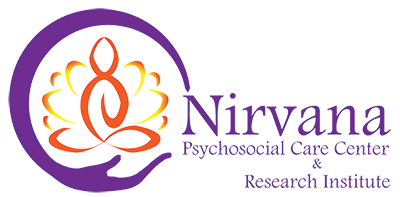Editorial Policy and Peer-Review Process
EJMS adopts the two-tier system of review; first-tier review is done by the editorial team and second-tier double-blind peer-review is done by 2-4 experts from related fields. When a manuscript is submitted to the journal, it is first assessed by editors in first-tier review and assessed to check if it is of sufficient quality and meets the criteria for submission. If it does so, it will be sent to second-tier review by the subject expert. The editorial team will select potential peer reviewers within the field of research to review the manuscript and make recommendations.
Peer-Review Process
EJMS follows the double-blind peer-review process where the identity of the author is kept anonymous to the editor as well the author so as to ensure any sorts of personal bias and increasing the quality of the review. The provisionally selected papers from the first-tier editorial review will be subjected for full review by 2-4 experts (outside the editorial board) from the related field of the paper for content validity. We make every effort to reach an initial decision within two to four weeks of submission, depending on the type and clarity of research work, research methodology used, and availability of reviewers. [Click to view detailed peer-review policy with flow-chart]
Editorial Decision
Final decision on the submitted manuscript will be made based on the overall quality of manuscript including the novelty of research, reliability, validity, and interpretation of results and its conclusion combining the feedback from editors and reviewers. Ethical guidelines of the journal, and other factors such as scientific merit, clinical relevance and implication of the manuscript submitted, Journal's ocerall priority, number of pending manuscripts, similar manuscripts in review or accepted for publication, competition for a limited number of printed pages, and page constraints, and relevance to the readership of the journal will also be taken into account during the final decision making process.
Ethical Guidelines of the Journal
We are unconditionally committed to meeting and upholding standards of ethical behavior at all stages of the publication process. We closely follow the industry associations, such as the Committee on Publication Ethics (COPE), the International Committee of Medical Journal Editors (ICMJE), and the World Association of Medical Editors (WAME), that set standards and provide guidelines for best practices in order to meet these requirements. Any research that involves humans in any stage of the work must be conducted in accordance with the Declaration of Helsinki (1964). Manuscripts describing experimental work which carries a risk of harm to human subjects must include a statement that the experiment was conducted with the human subjects’ understanding and consent, as well as a statement that the responsible Ethical Committee has approved the research methodology. In the case of any animal experiments, the authors must provide a full description of any anesthetic or surgical procedure used, as well as evidence that all possible steps were taken to avoid animal suffering at each stage of the experiment. All animal research must follow the ARRIVE guidelines.
The ethical approval letter is mandatory for an original research article. The author needs to upload a copy of the ethics approval letter during the initial submission of the manuscript. A statement of ethical approval must be included in the methods section of the manuscript, including the name of the body from which approval has been received with a reference number. The ethics statement also should include information on how the consent from the participant was obtained. For all articles that include information or clinical photographs relating to individual patients, written and signed informed consent from each patient, to publish it, must also be made available if requested by the editorial board. The involvement of scientific (medical) writers or anyone else, who has assisted in the preparation of the manuscript content, should be duly acknowledged, along with their source of funding. EJMS requires authors to declare any competing financial or other interests in relation to their work. All competing interests that are declared will be listed in the published articles. Where an author provides no competing interests, the listing will read the author(s) declare that they have no competing interests.
Reporting Guidelines
EJMS encourages all the authors to maximize the transparency and reproducibility of their research by using appropriate reporting guidelines while preparing their manuscripts. Our reviewers and editors are also encouraged to use them during the article processing and peer-review processes as well. We particularly encourage the use of the following guidelines:
- CONSORT guidelines for Randomized Controlled Trials
- TREND guidelines for non-randomized trials
- PRISMA guidelines for systematic review and meta-analyses
- CARE guidelines for case reports
- STROBE guidelines for observational studies
- STREGA guidelines for genetic association studies
- SRQR guidelines for qualitative studies
- STARD guidelines for diagnostic accuracy studies
- ARRIVE guidelines for animal experiments
- CHERRIES guidelines for improving the Quality of Web Surveys
The further details information regarding the reporting guidelines can be found in the Reporting Guidelines of EJMS.















